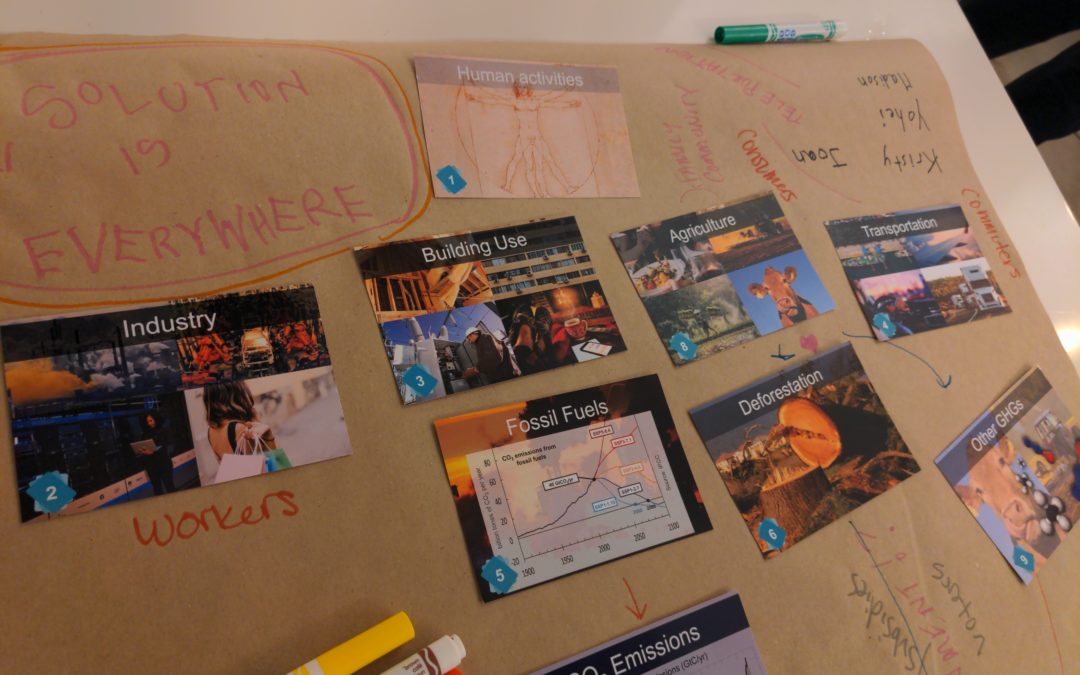We focus on Tech in Education in two ways: How to integrate Tech wisely to teach. And how to create smart & safe digital citizens, by helping kids, teens and young adults develop a critical view of digital Tech, from AI to YouTube.
Featured

How can a Climate Fresk Workshop Support Sustainability and Eco-Friendly actions ?
One of the challenges for climate activists, sustainability advocates and green champions is to engage fellow citizens, students, suppliers, clients and staff on a more sustainable and eco-friendly path.
The Climate Fresk workshop is an innovative, yet low tech tool from Europe that helps galvanize groups of citizens, students, employees, suppliers, clients and elected officials or civil servants to act on climate change, in an engaging 3.5 hour session.
The Dangers of the ChatGPT LLM for News
I asked ChatGPT,the AI Language Model ( “LLM”) about the dangers it represented for news in March 2023, after this nuclear weapon was released without notice or protection by OpenAI at the end of 2022.
So, here are some personal conclusions in response to ChatGPT’s ever cautious and hopeful answers.
Two European Sustainability Workshops now in Ontario and online: The Climate Fresk and The Digital Collage
Come and discover the Climate Fresk (Fresque du Climat) and the Digital Collage (Fresque du Numérique) in Toronto and Ontario! These Climate Change and Sustainable Digital Technology murals, as they could also be called, are two recent sustainability workshops out of Europe. The foundational, Climate Fresk workshop, allows everyone to simply and dynamically understand our Western economies’ detrimental impact on climate change in general . The Digital Collage is a complementary workshop to help prepare citizens and decision-makers for our transition to a technology and battery-fueled economy, away from fossil fuels.
Best practices in online teaching
As classes moved online during the Covid pandemic, many teachers moved to giving lectures online, through video conferencing, making "Zoom" a household name in 2021. However, teaching online is very different from delivering the same class given in person, even through many elements of best practices in pedagogy are common. It is also very different from "autonomous, or self-paced learning", as...
Parents & Educators: How Video Games, Social Media, & YouTube Impact Youth Mental Health
In 2022, we have witnessed around the world increased use of social media, block buster video games and video sites. The impact on kids' and teens' mental health of excessive use of online entertainment that was designed with pushing for maximum time spent in mind is more visible than it was in 2019. The " silent epidemic " of digital addiction of children and teens has become more apparent. Yet...
Digital Citizenship Youth Social Media Challenge : We Stop Scrolling
Are you between 13 and 18? Participate in a social media challenge to stop scrolling this Fall 2021, get the word out about a cause you care about and win Indigo or Decathlon Canada gift cards! Challenge ends December 10th. If you're a teacher, connect with Ontario Tech's Laura Morrison to participate with your class or sign up directly here for our October 14 teacher information session ( at...
Improving Youth Mental Health — and Protecting Canada’s Democracy involves Youth Digital Citizenship Education
The new civics education involves explaining to young people -and many adults- how digital tech has been designed- free of legal constraints or care for individual protection. The risk, if they’re used without guidance, , is to fall prey to privacy & security violations, cyberbullying, digital addiction, depression and disinformation and bias in the case of AI.
Main Authors
Caroline Isautier
From digital marketing to digital citizenship
Kate Tillezcek
Canada Research Chair on Youth
Hessie Jones
Venture Partner, Matr Ventures, privacy and marketing expert
